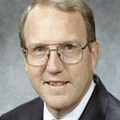Separate messes created by overregulation of vehicles and their fuels have begun to ooze together in the US. Before they become a blob, refiners, automakers, and ethanol producers should consider an idea imperiled by new developments.
One mess surfaced again this month when the Trump administration challenged an agreement between four automakers and the California Air Resources Board (CARB). BMW, Ford, Honda, and Volkswagen agreed with CARB to make vehicles meeting strict emission standards beginning in 2022 and to not challenge CARB’s greenhouse-gas and zero-emission vehicle programs. The companies said they were seeking regulatory certainty.
Stringent regulations
CARB administers the country’s most stringent vehicle-emissions regulations and worked with the administration of Barack Obama to toughen corporate average fuel economy (CAFE) standards. Under pressure from the auto industry, the administration considered easing the standards but, near the end of Obama’s presidency, decided against the move. Its successor plans a rollback.
CARB’s deal with automakers partly responds to that part of the Trump administration’s campaign of deregulation. In turn, Trump’s Environmental Protection Agency and Department of Transportation warned CARB in a Sept. 6 letter that the agreement “appears to be inconsistent with federal law.” Citing CARB’s description of the deal as “an alternative path forward for clean vehicle standards nationwide,” the agencies said the board was exerting authority reserved for the federal government.
Disagreement over vehicle-performance specifications thus spirals into a jurisdictional fight that might become constitutionally sticky. Regulatory contests will do that. Elections usually settle them.
The approach of 2020 general elections helps explain the administration’s resolve on CAFE relaxation. Trump wants to keep automakers happy. He also wants to keep agricultural interests happy—or at least less unhappy than they have become from overseas business lost to his trade wars. The EPA thus palliates farmers and grain distillers by allowing year-round sales of gasoline with elevated concentrations of ethanol and by proposing biofuel requirements higher than warranted by market conditions.
That, of course, aggrieves yet another group: refiners forced to buy compliance credits when they can’t meet impossible blending targets. Because the requirement especially hurts independent refiners, the EPA has used its authority to issue small-refiner exemptions, further angering ethanol makers and their corn suppliers, who mistakenly think the practice shrinks markets for the fuel additive.
Indeed, this all is a mess. It results from too much regulation and too little confidence in the ability of markets to distribute costs and benefits with maximum efficiency and minimum pain. While Trump admirably addresses overregulation, he makes markets bow to politics when he apportions favors to one industry after another. Even as he deregulates, he compounds regulatory error.
While appropriate, Trump’s effort to keep fuel-economy standards from costing too much for too little gain has an unintended consequence. It weakens the compulsion to move toward a national gasoline with elevated octane. The idea has received quiet discussion in the refining and auto industries and even appeared in legislation. The standard would be 95 research octane number (RON), a general requirement for which would raise the need for octane overall.
A higher-octane fuel required nationally would enable automakers to raise compression ratios and thus improve efficiencies of vehicle engines. Vehicle fuel mileage would improve. And the move would ensure demand for ethanol, an octane booster.
Requiring compromise
Yet mere consideration of 95 RON gasoline would require compromise. Advocates of aggressive vehicle fuel standards would have to settle for mileage improvement without thresholds testing practicability. Ethanol backers would have to discard sales guarantees. Refiners would have to invest capital. And all parties, especially politicians, would have to trust markets.
A national gasoline at 95 RON might prove not to be the best way to pursue the twin priorities of affordable mobility and emission abatement. And retreat from Obama’s CAFE standards subdues one big reason to address it. Considering it, though, would support a needed clean-up by marshalling compromise too frequently missing in the politics of cars and fuel.
About the Author
Bob Tippee
Editor
Bob Tippee, Editor of Oil & Gas Journal, has written the weekly magazine's editorials since 1981. Since 1996, he also has written a weekly online feature called "Editor's Perspective," which appears first on OGJ Online and later in the print magazine. A member of the OGJ staff since 1977, Tippee has been chief editor since January 1999. He holds a degree in journalism from the University of Tulsa.
